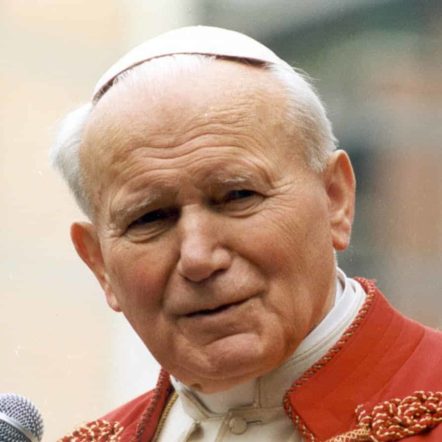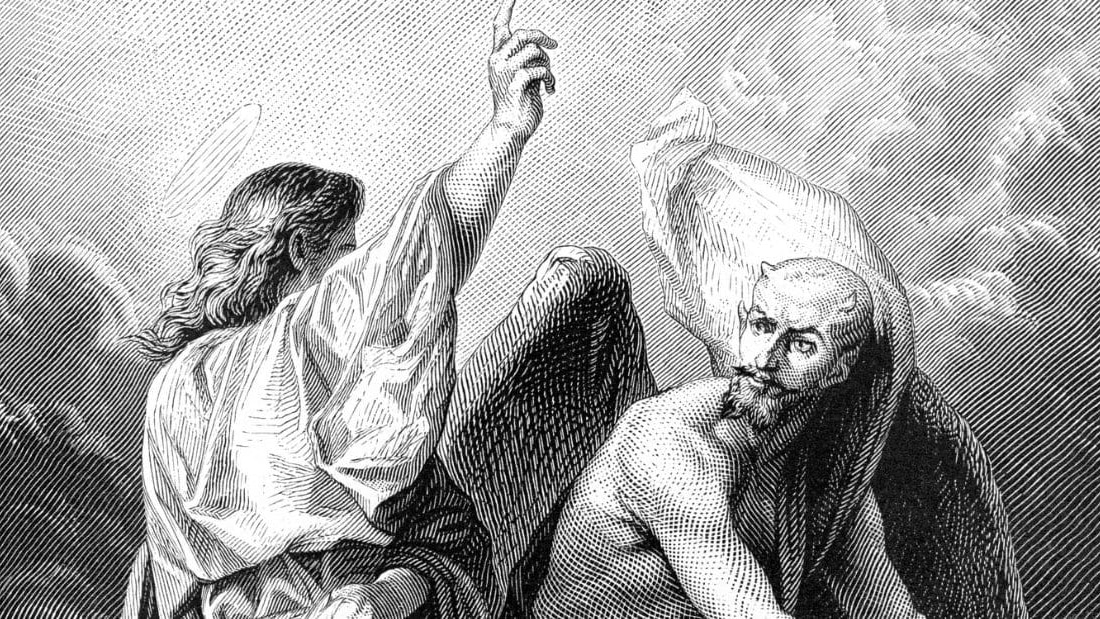“Then Jesus was led by the Spirit into the desert to be tempted by the devil. He fasted for forty days and forty nights, and afterwards he was hungry.” (Matthew 4: 1-2)
In November 2017, I was devastated by the news that in an Australian national survey, 61.6 percent had voted in favor of legalizing same-sex marriage. For years I had wrongly believed that this beautiful country would always remain the island of normality in the Antipodes. Unfortunately, this was not the case. A combination of factors had led to this moral disaster, but one of them was definitely the lack of fasting by lay Australians.
In Australia, the law states that abstinence from meat and fasting are obligatory ONLY on Ash Wednesday and Good Friday. On all other Fridays of the year, the law of penance is fulfilled by prayers, self-denial, and helping others. This is the bare minimum expected of Catholics to avoid violating Church Law.
Translated, the noun “fast” or “a fasting” is tsom in the Hebrew and nesteia in Greek, and refers to a voluntary abstinence from food. The literal Hebrew translation would be “not to eat,” while the Greek one means “no food.”
Even though the Bible does not give a direct command on this issue, examples of fasting appear in both the Old and the New Testaments. To name just a few: (Leviticus 23:27); (Judges 20:26); (1 Kings 13: 8-22); (Chronicles 20:3); (Ezra 8: 21-23); (Nehemiah 1:4): (Esther 4:3); (Psalms 35:13); (Jeremiah 14:12); (Matthew 2:4); (Mark 8:3); (Luke 2:37); (Acts 9:9); (1 Corinthians 7:5).
We should bear in mind that the Ninevites were delivered from imminent destruction through fasting (Jonah 3: 5-10); similarly, Australians could be freed from the ubiquitous culture of death.
One of the most meaningful passages in which fasting is mentioned is Matthew 6:16, where Jesus is teaching His disciples basic principles of godly life. When speaking on fasting, He begins with “When you fast,” not “If you fast.” In these words he indicates that fasting ought to be a regular practice of His followers.
Throughout history almost all the great men and women of God have known the secret of fasting.
St. Augustine: “Fasting purifies the soul. It lifts up the mind, and it brings the body into subjection to the spirit. It makes the heart contrite and humble, scatters the clouds of desire, puts out the flames of lust and enkindles the true light of chastity.” (“On Prayer and Fasting” by St. Thomas Aquinas)
St. Gregory the Great: “It is impossible to engage in spiritual conflict without the previous subjugation of the appetite.” (The True Spouse of Jesus Christ)
St. Thomas More: “The scripture is full of places that prove fasting to be not the invention of man but the institution of God, and to have many more profits than one. And that the fasting of one man may do good unto another, our Savior showeth Himself where He saith that some kind of devils cannot be cast out of one man by another “without prayer and fasting.” (Dialogue of Comfort Against Tribulation Ch.6)
St. Teresa of Avila: “Our human nature often asks for more than what it needs, and sometimes the devil helps so as to cause fear about the practice of penance and fasting” (Constitutions 22).
St. John Vianney: “My friend, the devil is not greatly afraid of the discipline and other instruments of penance. That which beats him is the curtailment of one’s food, drink and sleep. There is nothing the devil fears more; consequently, nothing is more pleasing to God.” (Modern Saints: Their Lives and Faces, Book 2)
St. Sharbel Makhluf was renown for both his fasting and his care for those who sought him out for prayer and blessing. Pope Paul VI at his beatification said: “In a world largely fascinated with riches and comfort, he helps us understand the paramount value of poverty, penance, and asceticism to liberate the soul in its ascent to God….”.
St. Faustina Kowalska: “On three days a week, Wednesday, Friday and Saturday, there will be a strict fast [on bread and water]…During the two great fasts, ember days and vigils, the food will consists of a piece of bread and some water, once a day.” (Diary, 565)
St. John Paul II urged each one of us to pray, fast and work towards a new culture of life. “Jesus Himself has shown us by His own example that prayer and fasting are the first and most effective weapons against the forces of evil.” (Evangelium Vitae, no. 100); (cf. Matthew 4:1-11)
Jesus demanded from a contemporary Polish mystic and stigmatic, Alicja Lenczewska, to attend Holy Mass every day, to adore the Blessed Sacrament and fast strictly on Wednesdays and Fridays. “I have been fasting on bread and water for two days. Today I have not eaten anything. The clock has struck noon and I feel no hunger. It is a lofty state of soul in which desire for God and communion with Him prevails.” (Testimony, 33)
In December 2019, the importance of fasting connected with prayer and other forms of mortification was emphasized by four exorcists, who wished to stay anonymous, claiming “… we are in spiritual warfare and that warfare is happening within the Church itself.”
Thus, shocking is the utterance of a highly-placed Australian clergyman: “Fasting from food is one traditional way of doing that, and digital fasting is a more contemporary way of doing the same.” If we add that fasting by law is merely one meal a day and two smaller meals, then I dare to say that our adversary would be falling down laughing.
Advancing against Satan these days we cannot afford any half-measures. Although fasting on bread and water may seem too rigorous for some, prior to the 20th century this practice of abstaining was not uncommon in the Church; and it may turn out to be beneficial, especially in time of Covid-19.
“For our struggle is not with flesh and blood but with the principalities, with the powers, with the world rulers of this present darkness, with the evil spirits in the heavens.” (Ephesians 6: 12)
The pro-death forces appear to dominate in federal and state governments, entertainment, education and mainstream media. I believe that the combined power of fasting and the Rosary can be compared to a spiritual explosive that Our Lord has given us to destroy the stronghold of evil and hasten the triumph of the Immaculate Heart of Mary. Fasting on bread and water with a large community that shares the same political and moral purpose may substantially affect the result of elections as well as move political leaders to action. Since Jesus was able to fast for 40 days, most of us, out of love for one’s country, should be able to offer one day a week.
In May 2019, Polish Catholic newspaper Nasz Dziennik reported: “The homily said in the sanctuary of Our Lady the Star of New Evangelization and St. John Paul II in Toruń, inspired over 10,000 Poles to fast strictly for 30 days for the upcoming elections to the European Parliament.” Ten thousand constitutes about 0,03% of Poland’s population. I suppose the outcome of the recent U.S. presidential election would have looked very different if only 100.000 Americans had fasted; the Church in America might have been out of woods for at least for the next four years.
Summing up, any fast undertaken must be done with spiritual wholeheartedness and commonsense. There can be circumstances when God does not expect us to make the sacrifice of fasting; in that case, it would cause headache, nausea and/or vomiting. When it comes to doubts, one might consult their spiritual director or their confessor. But, first and foremost, whether we are partaking or abstaining, as in every sacrifice, we should always unite it to the Sacrifice of Jesus Christ. In that way–united to Jesus’ suffering–it becomes all-powerful and influences the destiny of the whole world.





